Single Black women and the lies about our love lives
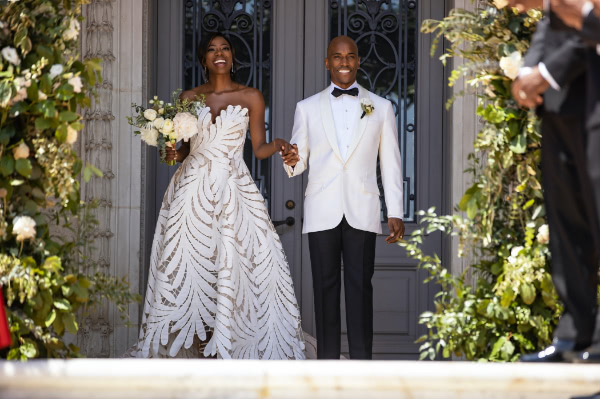
32% percent of American women overall are single. However, when you look at the number just for Black women, that figure almost doubles: 62% of Black women are unmarried.
Minda Honey, writing for The Undefeated, argues this statistic isn’t a problem that needs to be fixed. Being single isn’t something Black women should feel the need to run away from. Furthermore, we as a society don’t talk enough about the downsides of marriage or the benefits of singlehood.
The pandemic has only deepened my ambivalence about the supposed connection between matrimony and happiness. The surge in divorces these past few years made me question what these married women I’d often envied learned during the months they were shut-in with a spouse? Yes, the pandemic has been lonely for singles. But unlike many partnered women, I had not needed to drop out of the workforce to be the primary caregiver for children, nor had I found myself grumbling over being laden with an unfair portion of the household management. Often, when discussing singleness, there is a focus on what is lacking from a life unpartnered. Rarely do we consider what must be exchanged for a life lived with someone else.
Later in the piece, Honey speaks with Dr. Jessica Moorman, an assistant professor at Wayne State who studies Black women’s experiences in singlehood.
Instead of seeing statistics as evidence of some personal deficit, Moorman is clear: If you’re single, “There’s always somebody else. No one is late. No one is left out. No one is wrong. No one is bad. No one is unlovable because they are single. They are just doing life differently because Black Americans face unique, entrenched, structural problems that we have to navigate in ways that sometimes don’t allow us to marry on the timeline that peers of other races do.”
The secret history of the Black Brain Trust
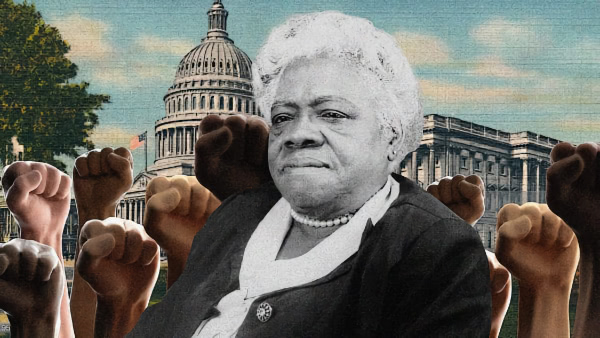
Back in the 30s, civil rights icon Mary McLeod Bethune somehow convinced President Franklin D. Roosevelt — a devout racist who refused to invite Jesse Owens to the White House after his triumph in the Olympics — to take advice from a group of Black geniuses.
No way would this have been possible without the support of Roosevelt’s wife Eleanor. She and Bethune were the best of friends.
Michael Harriot, writing for TheGrio:
Eleanor Roosevelt loved her some Mary McLeod Bethune.
Eleanor and Bethune’s friendship predated Roosevelt’s presidency and Bethune even chilled at FDR’s mama’s house, so he had no choice but to respect the relationship between his cousin/wife and Bethune.
On one of Bethune’s visits with the Roosevelts, she made the President an offer he just couldn’t pass up: Start enacting legislation benefitting Black Americans and you could win the Black vote for Democrats.
He took up Bethune’s offer and had her organize a group of the most innovative Black thinkers in the country, who eventually became known as the Black Cabinet, the Black Brain Trust or the Federal Council of Negro Affairs. Although the group was not an official government entity … these brilliant men and women collaborated on legislation, economic development and, in many cases, penned the laws that would affect Black Americans throughout the country.
The Black Brain Trust’s efforts helped end segregation in the U.S. military, ensured FDR’s New Deal programs helped Black Americans, and more.
Teachers Tackle Black History Month, Under New Restrictions

The right’s war on “CRT” continues to bear fruit. Many teachers don’t know what they should or shouldn’t say when it comes to relaying basic facts of American history.
A teacher in Oklahoma City says he’s hesitant to use the word “white” to describe the (white) people who wanted to uphold slavery.
Jacey Fortin and Giulia Heyward, reporting for The New York Times:
In February, public-school teachers traditionally shape lessons around Black History Month. But this year, educators in several states are handling their classes a bit more gingerly.
Republican-led legislatures in several states passed laws last year to ban or limit schools from teaching that racism is infused in American institutions. And while students in those states are still learning about activists like Ida B. Wells and Claudette Colvin, and eras like Reconstruction and the civil rights movement, some teachers are also exercising a quiet restraint. The laws, they say, have added the threat of termination to the long list of things they worry about, from pandemic safety to struggling students to staff shortages.
“I am not going to let any of these laws deter me from the things that I think work best for students,” said Eric Parker, the history teacher in Oklahoma. “But I also enjoy working with students and having a roof over my head.”
The New N-Word Standard Isn’t Progress

Every time I include John McWhorter here, I’m tempted to describe him as “ever-controversial”. If anything, he’s always… “thought-provoking”. Whether I agree with him or not, the man makes me think.
This time he asks (and I’m paraphrasing here), “Are we Black folks so fragile that we can’t even bear mention of the N-word?”
McWhorter for the Times:
Over roughly the past two decades, American mores have been settling into an idea that when it comes to the N-word, there’s no difference between use (lobbing the word as a slur in reference to a Black person or Black people) and mention (referring to the word itself). Particularly if the speaker is white. […]
I suppose the idea behind this new idea — that the problem isn’t just using the N-word as an insult, but uttering it in any context, including quoting someone else — is that the old approach was insufficiently antiracist. But it is a strange kind of antiracism that requires all of us to make believe that Black people cannot understand the simple distinction between an epithet and a citation of one. Missing that distinction, or pretending to, is at best coarse. And we are being instructed to carry on as if this coarse approach is a kind of sophistication.
Plus, the assumption that Black people are necessarily as insulted by the mention as by the use implies a considerable fragility on our part. An implication that I reject and resent. If all someone has to do to ruin your day is say a word — even in the process of decrying it — your claim on being a strong person becomes shaky. I made the same point last week in a somewhat different context, and I realize that some are affronted by my calling their fortitude into question, but I am mystified by how comfortable so many of us are in giving white people this power over us.
Free MasterClass on Black History, Black History & Black Love
Love this. MasterClass is streaming their excellent Black history course for free during Black History Month.
The instructors: Jelani Cobb, Nikole Hannah-Jones, Angela Davis, Kimberlé Williams Crenshaw, Cornel West, John McWhorter, and Sherrilyn Ifill.
MasterClass:
This class will inform, contextualize and challenge viewers to rethink the notions of race and racism, while reconciling gaps in traditional education about U.S. history and offer tools and techniques to empower change in our own lives. Gain a foundational understanding of the history of white supremacy and discover a path forward through the limitless capacity and resilience of Black love. […]
From critical race theory to the 1619 Project, learn from seven Black intellectuals who are reshaping conversations on race in America. Deepen your knowledge of Black American experiences, past to present, with groundbreaking scholars.
(via kottke.org)
Mahershala Ali Finally Gets the Leading Role He Deserves

Robert Ito speaks with Mahershala Ali for the Times:
In a more just world, Mahershala Ali, one of America’s most gifted actors, would have played the lead in at least a dozen films by now.
He’s certainly paid his dues and then some. Over the past two decades, the 47-year-old actor has starred or played key roles in prestige series (HBO’s “True Detective”), sci-fi franchises (“The Hunger Games”) and network-defining political thrillers (Netflix’s “House of Cards”). In 2017, he won his first Academy Award for his performance in “Moonlight,” a master class in what you can do with just 20 minutes or so of screen time, and a second Oscar two years later, for his performance in “Green Book.”
So it may come as a shock to learn that Ali has never played the lead role in a feature film before, not until his star turn in the sci-fi drama “Swan Song,” now streaming on Apple TV+.
‘Moon Witch, Spider King’ is a rare sequel that is better than its predecessor
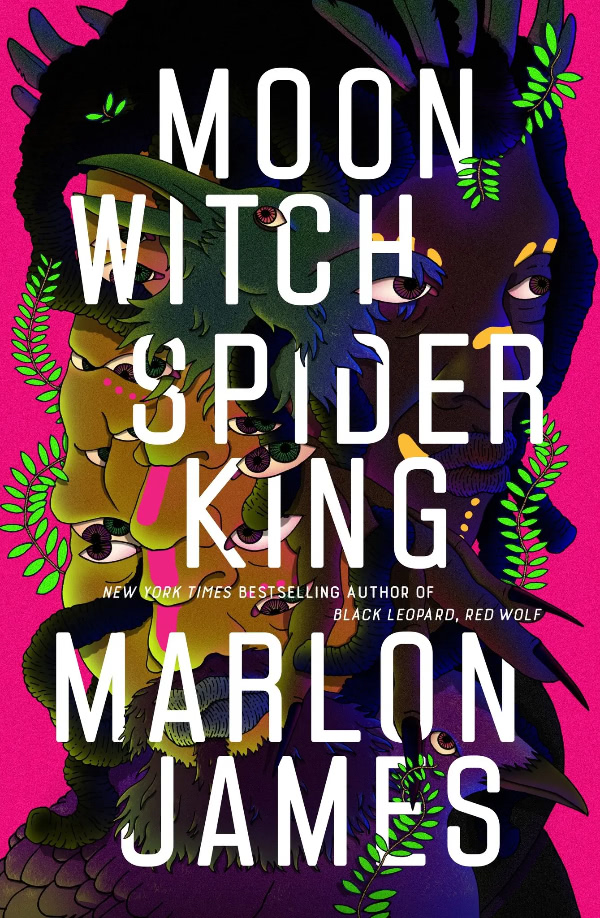
NPR’s Alex Brown reviews Marlon James’s new novel Moon Witch, Spider King:
Black Leopard, Red Wolf, the first book in Marlon James’ Dark Star Trilogy, was one of those novels that broke my brain in the best possible way. Unwieldy and unrelenting, it systematically dismantled everything I thought I knew about epic fantasy.
With the sequel, Moon Witch, Spider King, James once again shattered my expectations. As awed as I was by Tracker’s story in the first book, Sogolon’s tale makes this a rare sequel that is better than the first.
The novel follows the travels and travails of Sogolon, the aforementioned Moon Witch that Tracker frequently conflicted with in his novel. Some of her story retells Tracker's, Rashomon-style, but much of it is her own life, one that begins with oppression and ends with a hard-won semi-freedom.
Faith Ringgold’s Path of Maximum Resistance
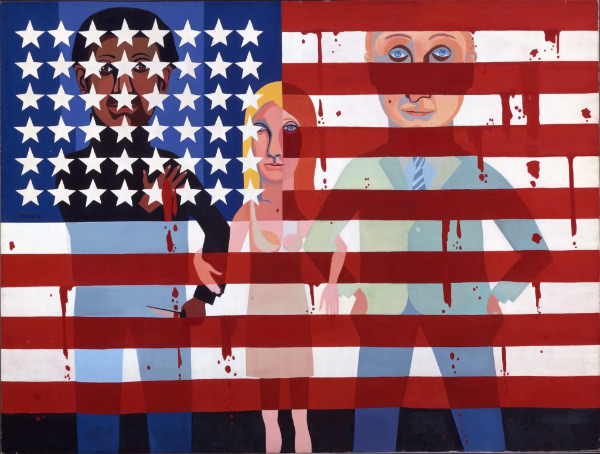
Holland Cotter, reporting for the Times:
If you want to catch the heat of the lava flow that was United States racial politics in the 1960s, the second floor of the New Museum in Manhattan is a good place to go. There you’ll find the earliest work in “Faith Ringgold: American People,” the first local retrospective of the Harlem-born artist in almost 40 years.
Now 91, Ringgold was already a committed painter when the Black Power movement erupted. And she had a personal investment in the questions it raised: not just how to survive as a Black person in a racist white world, but how, as a woman, to thrive in any world at all.
Ringgold is a genius. I can’t wait to see this.
Faith Ringgold: American People runs through June 6 at the New Museum in Manhattan.
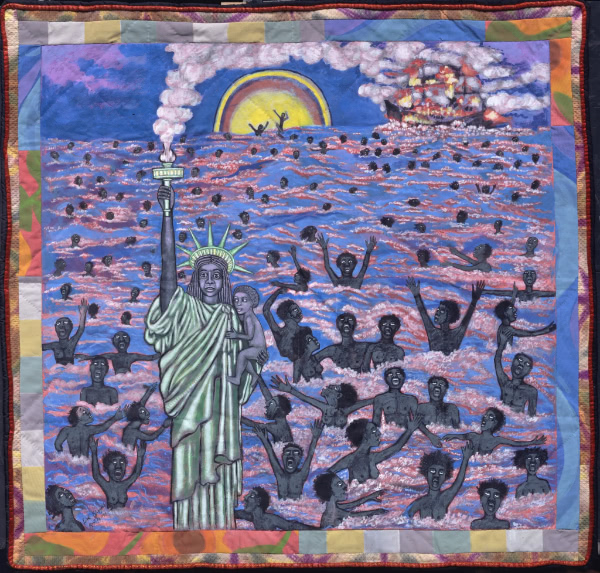
Thanks for reading. See you next week.
